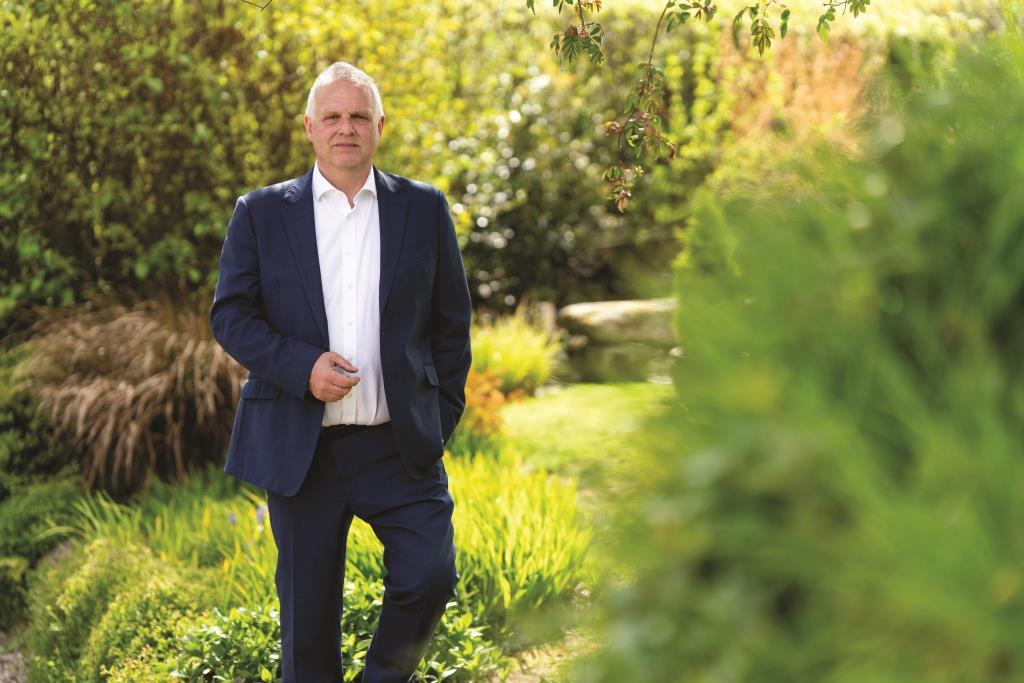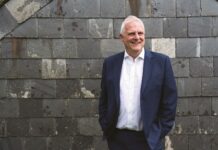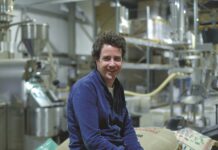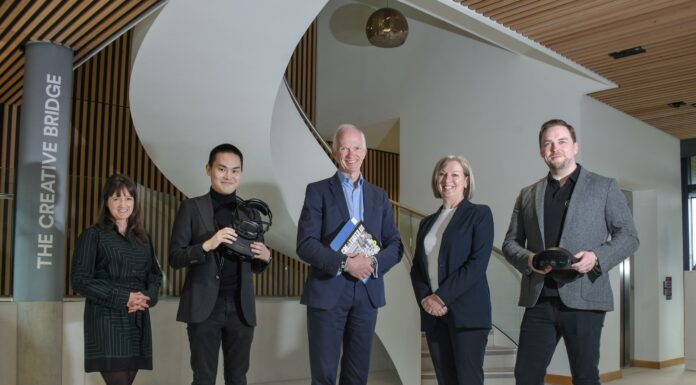In a blog published when the G7 was announced, you asked people to look beyond ‘pasties and Poldark’ and open their eyes to a new Cornwall. What did you mean by that?
It alludes to two big things really. In Cornwall we now have opportunities to reshape our economy going forward, particularly around the green agenda. We have relatively small businesses down here emerging in areas which could be absolutely huge. For instance, if we see floating offshore wind realised in the Celtic Sea, by 2030 that could be a £10 billion investment, not just the stuff that goes out on the sea but the assembly, servicing, the power coming ashore etc.
We’re starting to get real traction behind the georesources argument, lithium and minerals. And lithium is really exciting, because it’s not just the finding it and mining it but it’s also the refining process of it. At the moment, lithium around the world is shipped intercontinentally, so the cost of doing that and the carbon impact of producing batteries is huge. We have an opportunity in Cornwall of doing it all in almost one place.
And we’re seeing a lot of interest around space and data. Hopefully launches from Newquay will start next year and then we can start to look at the data application coming back from those satellites; Goonhilly and big data, and some of the investments there. By 2030, if we’re not surrounded by these sort of things, I think everybody will be really disappointed. But the other side of Poldark and pasties is how do we reconfigure our traditional industries as well? We’ve got a fantastic reputation as a visitor destination and for our food and drink and fishing, but those industries have been clobbered by Covid, probably lost well over a billion pounds in revenue over the last year. And we also know they are traditionally relatively low paid and seasonal, so we’re looking also how to redefine those industries and broaden the scope in terms of seasons.
Do we make some of the offer more environmentally regenerative, different sorts of holidays? How do we up the whole offer to make sure the quality of what people get in Cornwall continues to improve? And then making sure we’re investing in the right skills agenda to go behind it. So, we see the key planks of change in Cornwall being unlocking some of these big structural things, which is why we’re so keen that the Government looks a bit longer term around funding opportunities so we can lock in the private money to go behind it.
It’s also about getting behind our traditional businesses and making them far more competitive. And behind all of that being mindful that we have some communities with real difficulties in terms of skills, deprivation and earning levels and we know going forward they have to be revitalised and reinvigorated and we need to get more people back into work.
So, with ‘Pasties and Poldark’, we’ve got such a fantastic brand strength, but how do we get underneath that and make sure more of the value of that sticks in Cornwall?
Why do you think the Prime Minister chose Cornwall to host G7?
We’re really delighted that he did! Cornwall’s international reputation for the things we’ve mentioned, being a place to visit and eat out, family time is key, but I think as well, the Government recognises we ought to be a leader. People talk about the fourth industrial revolution, with our resources around it in terms of energy – wind, geothermal, groundsource. Also, there’s huge interest in unlocking the potential of space as a massive market. Cornwall is a bit betwixt and between at the moment; it’s evolving into a very different place and that different place is really relevant to the sort of growth the Government wants. Hosting G7 might not get people reaching for their order books straight away, but it will help draw investors to some of these emerging areas.
What legacy would you like hosting the summit to leave?
There appears to be a willingness from Government to make sure there is an immediate legacy and the environmental bias towards that is very welcome. But in the medium to long term, in 5-10 years Cornwall will hopefully look back and think what a fantastic opportunity we had to talk to the world. It won’t be the answer, but it will be a big fillip on the way to creating something different.
A good shop window for attracting future investment?
There’s a lot of interest from investors in energy and geo-resources, but it’s also encouraging Cornish businesses to look again at where their market should be, raising ambition levels not only of businesses but also young people to see those world leaders here.
Things like space for instance, the programme has been engaging with school children which has been massively powerful. And building those bridges between trade bodies and investment bodies, Government, Department for International Trade and people like that, it is relationships like that that will bear fruit. And I suspect that will be the real legacy.
Can Cornwall’s beautiful natural landscape help in attracting inward investment, particularly in the wake of the pandemic?
The impact of that is two-fold. There is a lot of house buying at the moment, a recognition that it’s a beautiful place to live and work. But that whole impact on housing is something that is very profound and Cornwall will have to work through how we respond to that collectively. The other part of that is there will be people around looking at our business and visitor economy thinking these could be really sound investments going forward. I know we spoke about extending the seasons, but the interest in health and wellbeing and the great outdoors, can we really start to make inroads into making it a more year round industry?
Can we get behind those really novel industries looking at environmental regeneration and experiential holidays and not just the family side of it? We’ve got some really beautiful places which aren’t overrun in the summer and we need to think how we do it differently, because there’s a risk our hot spots have too many visitors.
We want to create a slightly different visitor economy, more people being employed for longer and we need to get behind the skills agenda, because we are still finding it difficult attracting the right people. We have some fantastic Further and Higher Education resources now in Cornwall. We have South West Institute of Technology about to be launched as well, and those people are really working closely together.
We need to really get behind the skills agenda, but not just for young people but also people my age who may need reskilling as our economy changes. We need that way of thinking, rather than just short-term shovel-ready competitive bids, which are welcome, but they’re not going to make the difference that we need.
LEPs have been going 11 years now since effectively replacing the RDAs. How do you gauge their success?
I think LEPs are strange organisations which are hard to understand, because they sit in a space between private business and government, but we’re predominantly a private-sector led body.
Although there’s lot of variation up and down the country, LEPs tend to build around distinct economies. That ability to think strategically about what needs to happen. But also not just the strategy, but also working independently with partners, joining up Government, local government with private businesses and emerging sectors.
When we were talking about Newquay becoming a spaceport for example, the LEP has always been a key partner in talking to the UK Space Agency, Virgin Orbit, the Council, lobbying the Government, talking to businesses who may be part of that supply chain. That kind of strategic thinking and pulling groups of people together is really key.
And the other area we measure ourselves on is the delivery programmes, when we get opportunities to invest directly. Are we able to get those monies away and do we get the results we need?
In the early days it was large transport upgrades such as the A30 and rail, latterly it’s been more about getting behind private businesses and step change growth, or working around the skills agenda.
The LEP here is just for Cornwall and Scilly. Does that make it easier than had it been based in Exeter for example?
Yes. Having only two councils to deal with is key. The LEPs are based on sensible economic geographies and Cornwall makes a lot of sense in its own right. It has a very distinctive geography and economy.
We do share the same problems with much of the south west peninsula, but we don’t share it with places like Bristol, South Wales or Gloucester. So having something based around the geography of the LEPs makes sense both in looking small and looking large.
There is a lot of focus at the moment from Government on what those economic entities should be and I really hope Cornwall will stay as it is, because I think it works down here.
Do you think Whitehall understands Cornwall?
I think largely it does. The Whitehall people we work most closely with down here, absolutely understand Cornwall. Our issue is probably through national policy being more aligned to London, the north, cities – different economies than ours. And coming out of Covid and the disruption to markets caused by Brexit, the need to urgently rekindle economies has probably led to a more short-term, shovel-ready, basic infrastructure type approach than Cornwall needs.
We have to realise we are a relatively small economy in a distant place. But if you look at how the Government would like to see the UK economy evolve, we are absolutely plum centre of that.
With all this potential, are you confident for the future?
I am, but the next couple of years are going to be really tough. I think we’ll have a really busy summer, and we’re going to start seeing markets pick up again. The G7 summit will be a fantastic opportunity for us, but we still know we have lost so much in terms of revenue and the indebtedness of individuals and businesses is significant. So, the ability of those businesses to raise cash to expand is going to be restrained and we’re not out of Covid yet, we’re not out of the disruption of things like Brexit. So I think the next couple of years are going to be hard and I think Cornwall has to be honest with itself that we’ve got some hard miles ahead.
When you start to look after that, you start to see the clean energy business grow, the georeources, the space agenda, the digital investments to underpin things like our creative industries, you can see how we ought to be tremendously competitive. So, I am genuinely optimistic about the next five, ten years, but I am worried with all the glitz of G7 and this summer, everyone will think it’s all fine now and it really isn’t. Universal credit numbers have doubled.
Places have been hard hit, young people have been hard hit. But longer term, I really do think we’ll start to see structural change in terms of where people earn a living and how they earn a living. And that’s why it’s so important we keep the skills agenda high.
This article appears in the June 2021 issue of Business Cornwall magazine.











